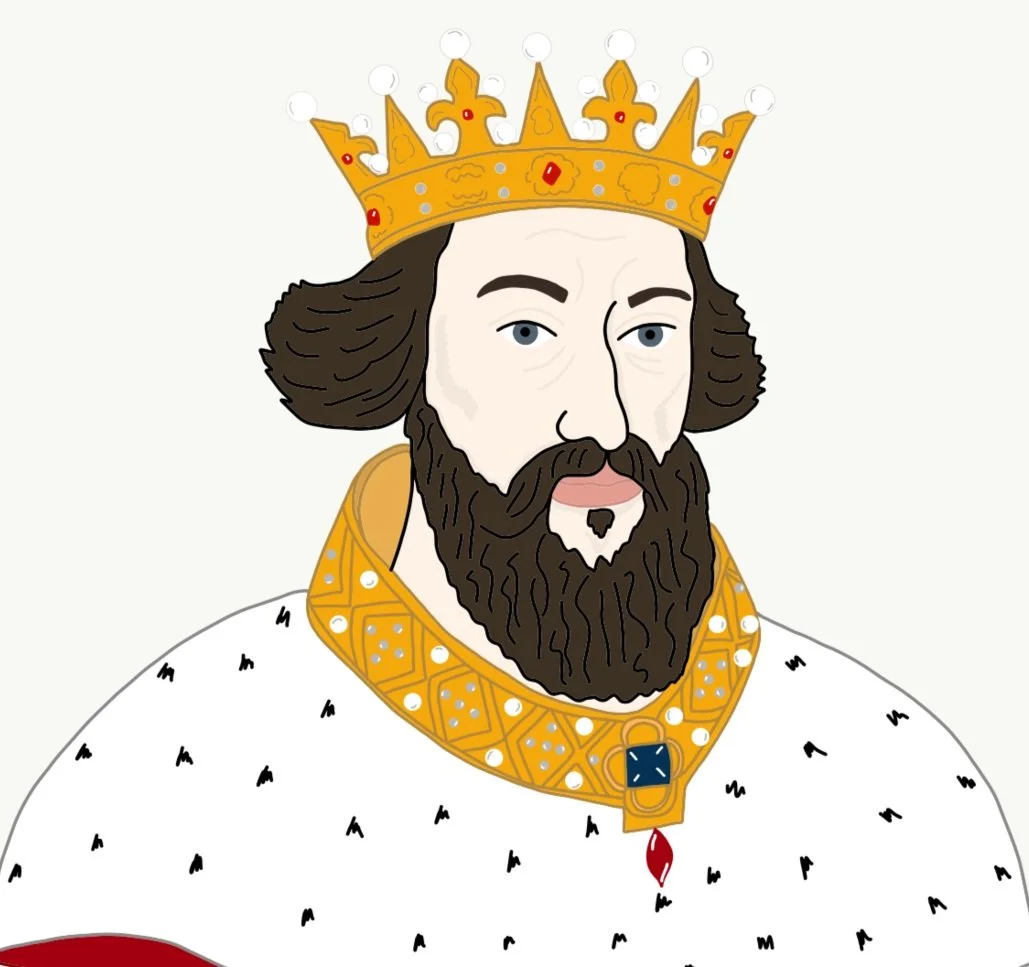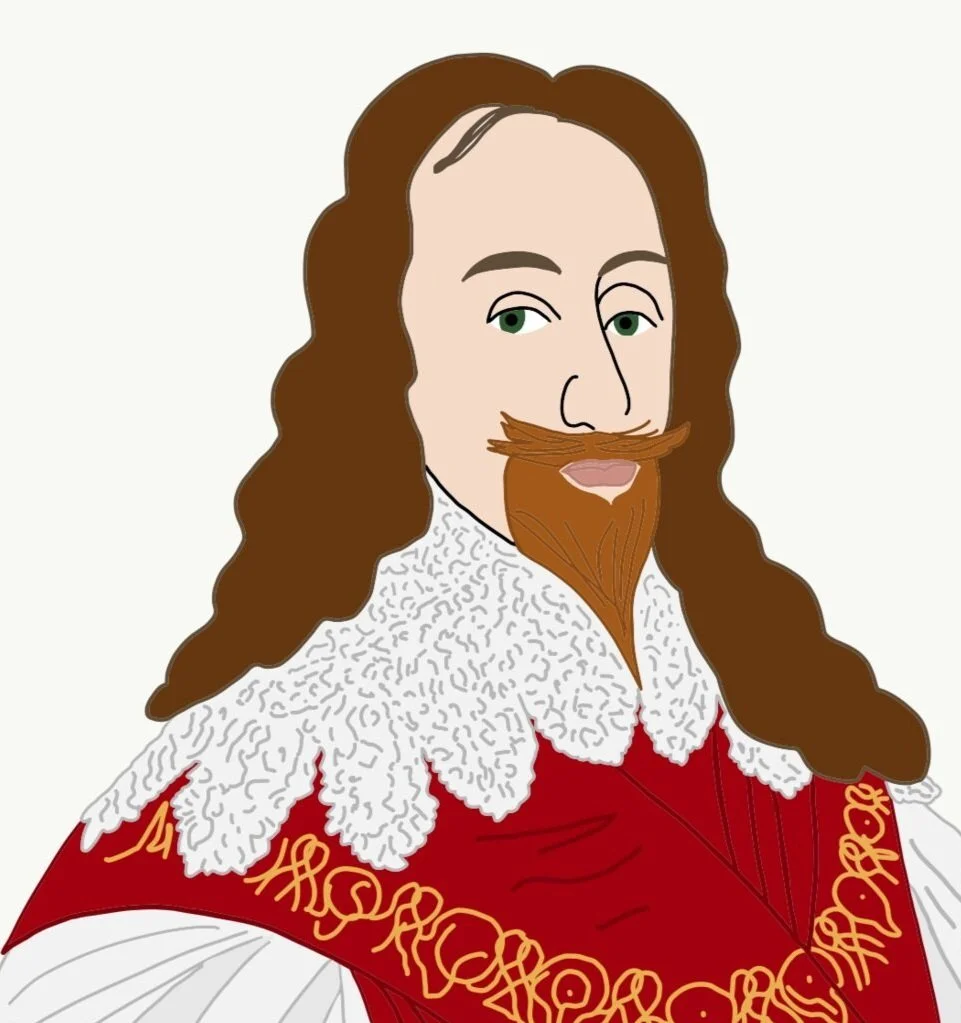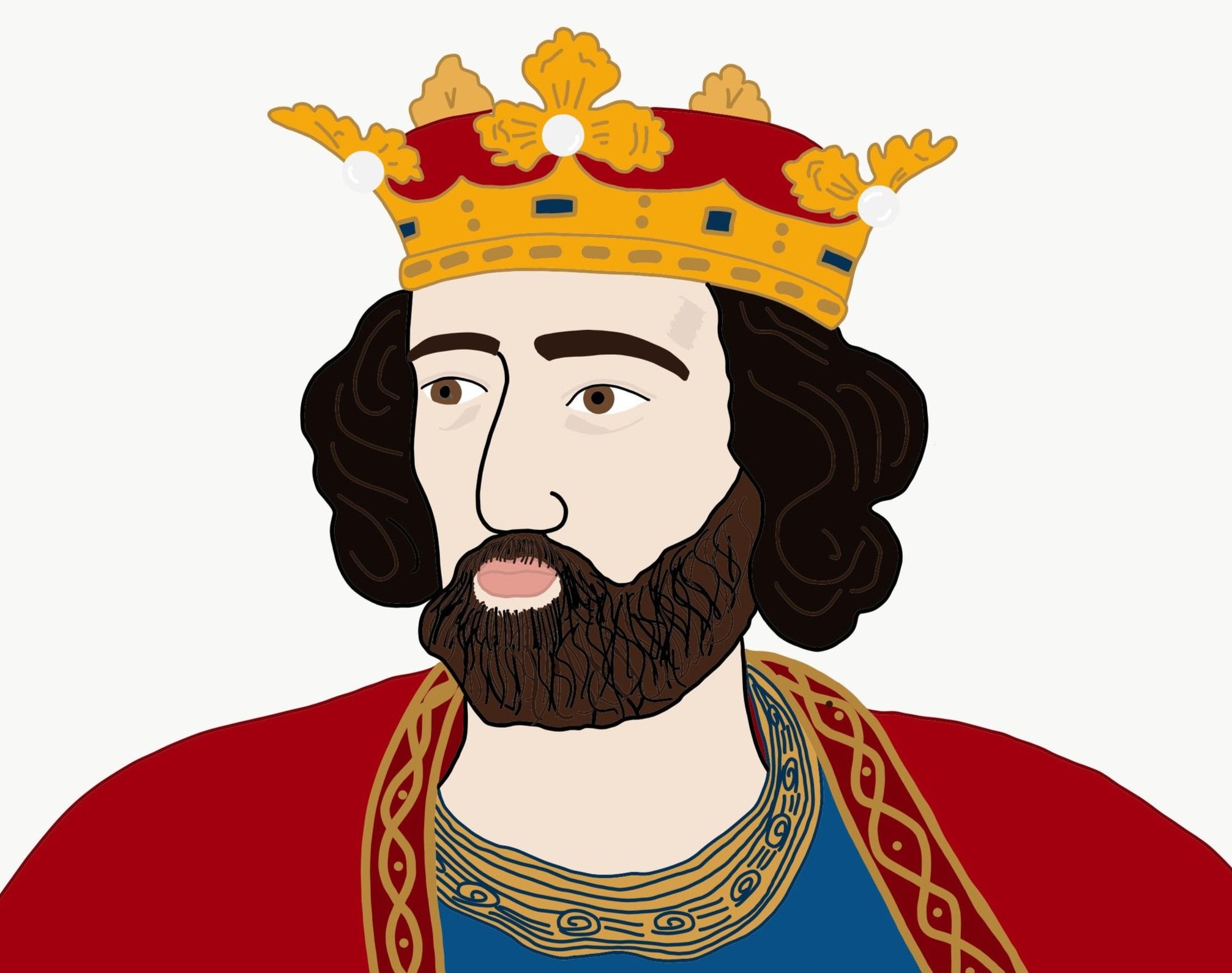November 25th - December 1st
On 25th November…
1034 - King Malcolm II of Scotland died. His grandson Duncan inherited the throne to become King Duncan I.
Henry I distraught when his son and heir drowned at sea
1120 - Prince William Atheling, the son and only legitimate male heir of King Henry I of England drowned in the English Channel in the White Ship tragedy. William was among three hundred of the nobility who were onboard the ship when it sank after hitting a rock. Everybody drowned including the oarsmen and the captain with one exception, a French butcher survived; he claimed to have seen the Captain purposefully drown himself after hearing that the Prince had already disappeared beneath the sea. The disaster caused problems years later when Henry died, because arguments arose over who was the rightful heir to the throne. This caused a civil war in England known as The Anarchy; Matilda, Henry’s daughter, was supposed to become Queen but instead her cousin Stephen took the crown with the support of some of the nobility - back then people didn’t think it was right for a woman to rule a country.
1626 - Edward Alleyn, one of the greatest actors of the Elizabethan stage died. He was also the founder of Dulwich College originally called the College of God’s Gift.
On 26th November…
Newark under siege for the third time
1645 - The third Siege of Newark began during the English Civil War. During this last siege of the castle and town, Scottish forces who had joined with the Parliamentarians were in position to take control of the town. They dug huge earthworks around the town, and the nearby River Devon was dammed to stop the corn mills from being able to work. By the following March the town of Newark still hadn’t surrendered to the Scottish forces; the town’s governor only admitted defeat when King Charles surrendered himself to the Scots in an attempt to split the alliance between the Scots and the Parliamentarians.
On 27th November…
Edward I called together the Model Parliament
1295 - King Edward I called what became known as The Model Parliament. It is regarded as the first representative parliament. The King had called for archbishops, bishops, archdeacons and proctors from each diocese (a church district), 2 knights from each shire, 2 citizens from each city, 2 representatives from each borough, 7 earls and 42 barons to come together to decide on his request of financial aid for the wars he was waging against France and Scotland. Each representative group met separately to consider the King’s request; clergy (the church), nobles (earls, barons and knights) and commoners (the regular everyday citizens). Each group decided to support the king, with each donating a percentage of their income.
On 28th November…
1170 - King Owain of Gwynedd died. He was the last great King of the Welsh and managed to expand Welsh ruled land whilst the English were busy fighting the civil wars between King Stephen and his cousin Matilda over who should be sitting on the English throne.
Eleanor of Castile, wife of Edward I died
1291 - The wife of King Edward I, Eleanor of Castile, died in Northamptonshire. The king placed crosses at every stopping point her coffin rested along its route from Northamptonshire back to London. Some of these crosses can still be seen at Geddington, Hardingstone, and Waltham.
During their thirty-six years of marriage, Eleanor gave birth to sixteen children but only six of them survived to adulthood.
1660 - The Royal Society was formed in London after a lecture by Christopher Wren, the famous architect. Today it is the U.K.’s national science academy and a Fellowship of 1,600 of the world’s leading scientists which is dedicated to the promotion of excellence in science.
On 29th November…
1781 - The crew of the British slave ship Zong began murdering African slaves by throwing them into the sea because it was overloaded, had missed its destination in the Caribbean, and had been at sea three weeks longer than planned. Drinking water was sparse and sickness had spread among the slaves and the crew. The captain decided that the best course of action was to throw the slaves overboard to try and stop disease spreading further. In total 133 slaves were thrown into the sea to drown. There were court cases and trials afterwards where the hearing was to decide not whether murders had been committed, but whether or not insurance could be claimed for lost cargo (the slaves thrown overboard). This inspired the abolitionists (people who wanted to end slavery) to set up a Society for the Abolition of the Slave Trade.
1940 - Liverpool suffered 8 hours of air raid bombing in World War II which killed 166 people and left 2,000 people homeless. The Prime Minister, Winston Churchill, called it the ‘single worst civilian incident of the war.’
On 30th November…
60 - St Andrew died. He is the patron saint of Scotland, and also of Russia. His cross has been adopted as Scotland’s flag, the white X on a blue background and forms part of the Union Flag of the U.K.
King Edmund II ‘Ironside’ died
1016 - King Edmund II of England died. He was also known as Edmund Ironside, a nickname he got for his size and strength. Edmund was the son of King Aethelred the Unready who had lost the English throne to King Sweyn of Denmark. Edmund became King of England when Sweyn died but faced invasions led by Sweyn’s son, King Canute of Denmark, who believed he had the right to the English throne. Edmund was not as easily defeated as his father had been and after several battles with the Danes suggested that he and Canute fight one to one. Seeing how big Edmund was, King Canute is reported to have said it would be an unfair battle and suggested splitting England into two separately governed kingdoms once more. Edmund agreed to the proposal and to a pact that the country would be joined again on the death of either King. Edmund Ironside died in suspicious circumstances just six months after, leaving King Canute to rule over all of England.
1874 - Winston Churchill, was born in Blenheim Palace in Oxfordshire. He was the British Prime Minister during World War II and kept Britain’s spirits up with his rousing speeches which became quite famous. Did you know he won the Nobel Prize for Literature in 1953?
On 1st December…
King Henry I died without a male heir
1135 - King Henry I of England died. He had become king in very suspicious circumstances; when his older brother William Rufus, King William II had been injured and killed in a hunting accident in the New Forest, Hampshire. At the time of the accident Henry is said to have raced to claim the throne instead of consoling his dying brother. Henry I left no legitimate male heirs, so his nephew Stephen with the backing of the nobility raced to the throne to be crowned King of England before Henry’s daughter Matilda, who was in France, could be made queen.
Rosa Parks arrested for not moving seats on a bus
1955 - Rosa Parks was arrested for civil disobedience for refusing to move to the back of a bus and give her seat to a white person in Alabama, U.S.A. Her arrest sparked a boycott of the bus system and led to a Supreme Court ruling against segregation on public transport in America.





